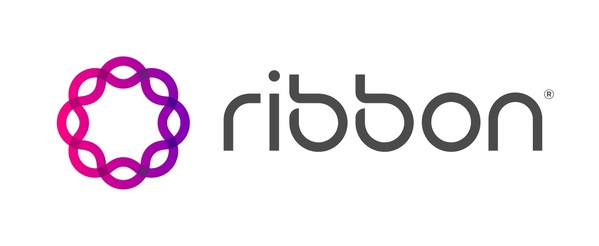Close to 90% of people have never heard of 'robocalls'

 |
Survey on robocalls conducted in response to the rapid global expansion of risks, such as fake phone calls during the US presidential election
PLANO, Texas, Oct. 30, 2024 /PRNewswire/ -- Ribbon Communications Inc. (Nasdaq: RBBN), a global provider of real time communications technology and IP optical networking solutions to many of the world's largest service providers, enterprises, and critical infrastructure operators to modernize and protect their networks has conducted a survey on robocalls (automated voice calls) in Japan.
Machine-generated robocalls, also known as automated voice calls, often utilizing AI technology. While these calls can enhance operational efficiencies and reduce manpower requirements, they are frequently misused for fraudulent activities, such as obtaining personal information or conducting scams.
Earlier this Spring, robocalls mimicking President Biden's voice using generative AI technology were used to dissuade voters from participating in the New Hampshire electoral primary ahead of the November 5th presidential election. Globally, robocalls have become a significant social issue. In Japan there has been a sharp increase in fraudulent robocalls, including scams involving false claims of unpaid fees.
Key survey findings include:
Comments by Yoshikazu Kuwabara, Senior Manager, Systems Engineering Department, Ribbon Communications
Robocalls have been increasing around the world over the past few years, and while not all robocalls are malicious, thery are contributing to a growing loss of trust in telephony. More and more, people refuse to answer calls from unknown numbers, blocked numbers, or avoid answering the phone altogether.
As robocalls are not a daily occurrence in Japan at present, many people are unaware of them. However, as 42% of respondents have experienced robocalls (automated voice calls), indicating that robocalls do exist in Japan and could become more common in the future. In the USA, where robocalls have become a major issue, call verification (STIR/SHAKEN) has already been mandated by the FCC and Congress.
In this context, Ribbon Communications offers Ribbon Call Trust as a solution for assuring the identity of callers (Identity Assurance Solution). It provides caller Reputation scoring, robocall and fraudulent call detection with anomaly analysis, STIR/SHAKEN services (Caller ID authentication, signing and verification), blocklisting, encryption, CAC, policy routing and CVT (Call Validation Treatment). functions, contributing to the creation of a safe and secure telephony environment.
Survey Summary
Survey Overview
Survey Method | :Internet |
Research Organization | :JustSystems Corporation |
Study Period | :22 to 24 of July 2024 |
Survey Area | :Japan |
Subject of a Survey | :Men and women aged 20~65 years |
Number of People | :330 |
The survey also found that more than half of those aged 50-65 years had been targeted by robocalls.
In terms of age, the most frequent experience of suspicious robocalls was in the 30s, at around 70%, followed by those in their 50s at around 50%.
Ribbon Call Trust® website
https://learn.rbbn.com/jp/identity-assurance
About Ribbon
Ribbon Communications (Nasdaq: RBBN) delivers communications software, IP and optical networking solutions to service providers, enterprises and critical infrastructure sectors globally. We engage deeply with our customers, helping them modernize their networks for improved competitive positioning and business outcomes in today's smart, always-on and data-hungry world. Our innovative, end-to-end solutions portfolio delivers unparalleled scale, performance, and agility, including core to edge software-centric solutions, cloud-native offers, leading-edge security and analytics tools, along with IP and optical networking solutions for 5G. We maintain a keen focus on our commitments to Environmental, Social and Governance (ESG) matters, offering an annual Sustainability Report to our stakeholders. To learn more about Ribbon, please visit rbbn.com.
Japanese website https://learn.rbbn.com/jp
Important Information Regarding Forward-Looking Statements
The information in this release contains forward-looking statements regarding future events that involve risks and uncertainties. All statements other than statements of historical facts contained in this release, including those regarding the expected benefits from use of Ribbon Communication's products, are forward-looking statements. The actual results of Ribbon Communications may differ materially from those contemplated by the forward-looking statements. For further information regarding risks and uncertainties associated with Ribbon Communications' business, please refer to the "Risk Factors" section of Ribbon Communications' most recent annual or quarterly report filed with the SEC. Any forward-looking statements represent Ribbon Communications' views only as of the date on which such statement is made and should not be relied upon as representing Ribbon Communications' views as of any subsequent date. While Ribbon Communications may elect to update forward-looking statements at some point, Ribbon Communications specifically disclaims any obligation to do so.
Media Contact
Ribbon Communications Public Relations Office(Within Kyodo Public Relations Co.)
Kanno, Otsuka、Kikuchi
TEL: 03-6260-4856 E-mail: ribbon-pr@kyodo-pr.co.jp
Logo - https://mma.prnasia.com/media2/633020/Ribbon_Logo.jpg?p=medium600